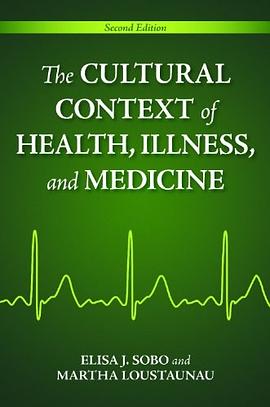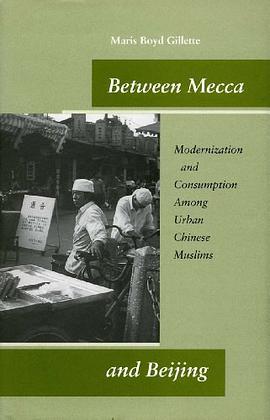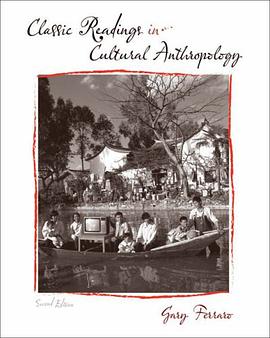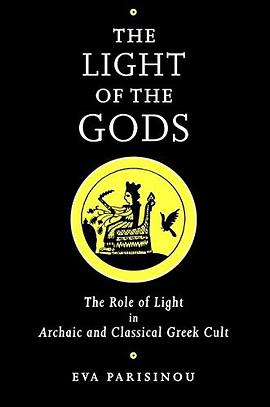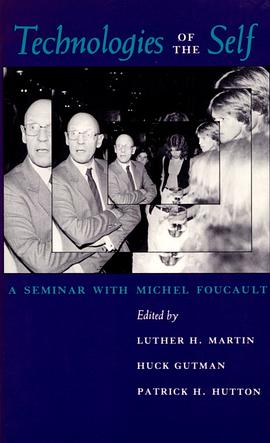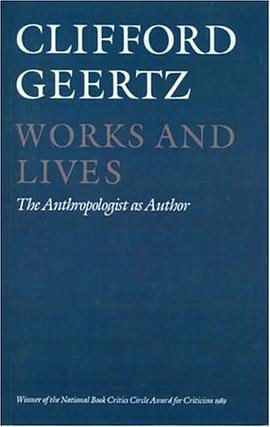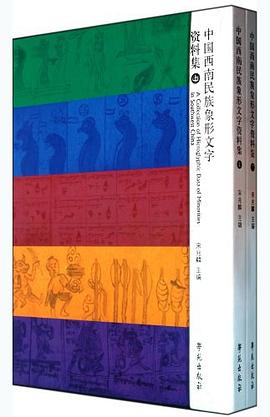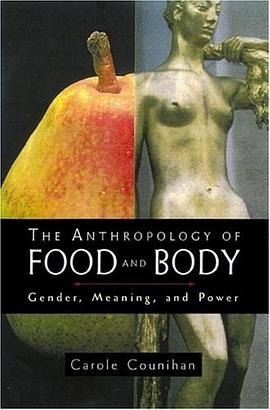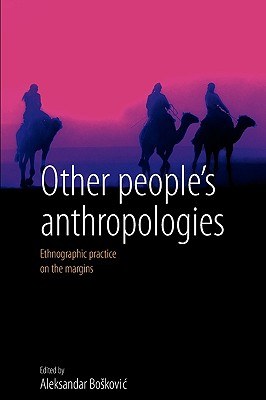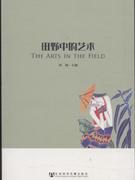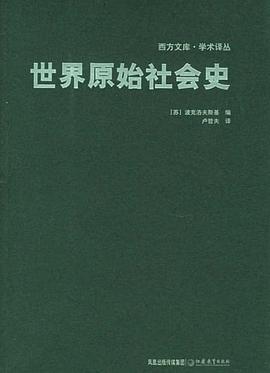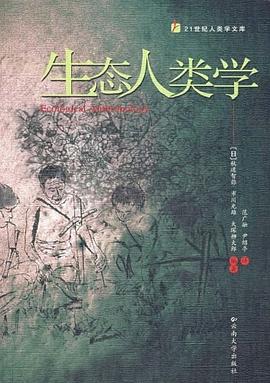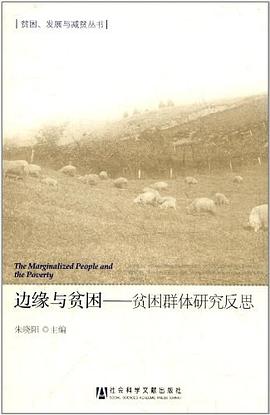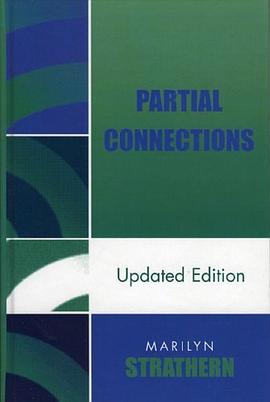
具体描述
In 1952, Professor Allan Holmberg arranged for Cornell University to lease the Hacienda Vicos, an agricultural estate in the central Peruvian highlands on which some 1800 Quechua-speaking highland peasants resided. Between 1952 and 1957 Holmberg, with colleagues and students, initiated a set of social, economic, and agrarian changes, and nurtured mechanisms for community-based management of the estate by the resident peasants. By the end of a second lease in 1962, sufficient political pressure had been brought to bear on a reluctant national government to force the sale of Vicos to its people. Holmberg's twin goals for the Vicos Project were to bring about community possession of their land base and to study the process as it unfolded, advancing anthropological understanding of cultural change. To describe the process of doing both, he invented the term "participant intervention." Despite the large corpus of existing Vicos publications, this book contains much information that here reaches print for the first time. The chapter authors do not entirely agree on various key points regarding the nature of the Vicos Project, the intentions of project personnel and community actors, and what interpretive framework is most valid; in part, these disagreements reflect the relevance and importance of the Vicos Project to contemporary applied anthropologists and the contrasting ways in which any historical event can be explained. Some chapters contrast Vicos with other projects in the southern Andean highlands; others examine new developments at Vicos itself. The conclusion suggests how those changes should be understood, within Andean anthropology and within anthropology more generally.
作者简介
Clifford R. Barnett is professor emeritus of anthropological sciences
at Stanford University. He is a past president of the Society for Applied
Anthropology and is one of the founders and past president of the Society
for Medical Anthropology. He has worked as an applied and medical anthropologist
in indigenous communities in the American Southwest and
Guatemala and in medical centers in the United States. Correspondence
should be directed to cliffb@stanford.edu.
Ralph Bolton, professor of anthropology at Pomona College, was a
Peace Corps volunteer in Peru from 1962 to 1965. He received his PhD
from Cornell University in 1972, with a dissertation based on two years
of fieldwork in the department of Puno. His work was twice honored
with the Stirling Award from the Society for Psychological Anthropology
(1972, 1974). He is an author of more than thirty publications dealing with
the Andes and the coeditor with E. Mayer of Andean Kinship and Marriage
(1977). His latest volume is a collection entitled Cuyes, Camiones y Cuentos
en los Andes (2008). Bolton is also founder and president of The Chijnaya
Foundation, a nonprofit organization engaged in applied anthropology in
the highlands of southern Peru. Correspondence should be directed to
ProfessorBolton@aol.com.
Paul L. Doughty is Distinguished Service Professor and professor emeritus
of anthropology at the University of Florida. He studied anthropology
at the University of Pennsylvania and at Cornell University (PhD, 1963),
directed by Allan Holmberg. He worked in and visited Vicos many times after 1960; he was a consultant with the World Bank and the U.S. Agency
for International Development in Peru and Ecuador, president of the Latin
American Studies Association, and Malinowski awardee for career achievements
from the Society for Applied Anthropology. Correspondence
should be directed to p_doughty@bellsouth.net.
Jorge A. Flores Ochoa is professor emeritus at the Universidad de
Cuzco. A student of Oscar Nuñez del Prado, Professor Flores worked at
Kuyo Chico, a well-known 1960s project of Peruvian applied anthropology
stimulated by the Vicos Project. He is a leading authority on the anthropology,
past and present, of the Cuzco region, with extensive personal
research and publications on alpaca-raising communities in the southern
Peruvian highlands.
Tom Greaves is professor emeritus of anthropology at Bucknell University.
He completed his doctoral research in the late 1960s on four Peruvian
coastal haciendas. Additional field research in the Andes dealt with tin
miners, health, the fiesta complex, colonist farmers in the upper Amazon,
Andean proletarianization, and urban migrants. His more recent work has
dealt with contemporary indigenous issues and human rights. Greaves has
served as president of the Society for Applied Anthropology and on the
governing council of the National Association for the Practice of Anthropology.
Correspondence should be directed to greaves@bucknell.edu.
Billie Jean Isbell is emerita professor of anthropology at Cornell University.
She directed the Andean program for Cornell’s International Institute
for Food, Agriculture, and Development from 1990 until 2002. She also
directed the Latin American Program at Cornell from 1987 to 1993 and
again in 2001 and 2002. Recent publications include “Written on My
Body,” in Violence: Anthropological Encounters (2009); Finding Cholita (2009);
“Culture Confronts Nature in the Dialectical World of the Tropics,” in
Foundations of Archaeoastronomy (2008); “Para Defendernos,” in Bartolomé
de las Casas (2005); and “Protest Arts from Ayacucho, Peru: Song and
Visual Artworks As Validation of Experience,” in Quechua Expresivo: La
Inscripción de Voces Andinas (2004). Illustrations of the art and music are
available on her website, “The Billie Jean Isbell Andean Collection”
(http://isbellandes.library.cornell.edu). She also has another website,
titled “Vicos: A Virtual Tour” (http://courses.cit.cornell.edu/vicosperu/
vicos-site). Correspondence should be directed to bji1@cornell.edu.
William Mangin, professor of anthropology, Syracuse University, retired,
resided in Peru for three two-year periods and visited many times
between 1951 and 1996. His first work in Peru, in 1951, studied alcohol
use among Andean Indians in Vicos. He was field director of the Vicos
Project from mid-1952 to mid-1953; he studied migration to Lima and
squatter settlements in 1957 to 1959 and taught at the University of
San Marcos at that time. He was deputy and then acting director of the
Peace Corps in Peru from 1962 to 1964. His made his last visit to Vicos
in the 1980s. Some of his publications include It’s All Relative (1988);
“Thoughts on Twenty-four Years of Work in Peru: The Vicos Project
and Me,” in Long-term Field Research in Social Anthropology (1979);
“Squatter Settlements” in Scientific American (1967); and “Latin American
Squatter Settlements: A Problem and a Solution,” in Latin American Research
Review (1967).
Enrique Mayer studied economics and anthropology in England and
received his doctorate from Cornell. From 1971 to 1978 he served on the
faculty of the Pontificia Universidad Católica del Perú and directed the
master’s program in anthropology. From 1977 to 1981 he headed the Departamento
de Investigaciones Antropológicas of the Instituto Indigenísta
Interamericano in Mexico and was editor of the Revista América Indígena.
He was professor of anthropology at the University of Illinois, Urbana
Champaign, and, for eight years, director of the Center for Latin American
and Caribbean Studies until 1995. Since 1996 he has been professor of
anthropology at Yale. He has done fieldwork in Peru in the community of
Tángor in Pasco province, in the headwaters region of the Río Cañete, in
the Mantaro Valley, and in the Tulumayo Valley in Paucartambo province,
Cuzco. His latest book is Ugly Stories of the Peruvian Agrarian Reform (2009).
Correspondence should be directed to enrique.mayer@yale.edu.
William P. Mitchell, professor of anthropology and Freed Professor in
the Social Sciences at Monmouth University, as well as visiting professor
of anthropology at Lima’s Catholic University in 1987 and 1988, began his
research in Peru in 1965, conducting many research trips and investigations
in Ayacucho, Huancayo, Lima, and other areas of the coast. In addition to
many articles, he has published Peasants on the Edge (1981), Voices from the
Global Margin (2006), Picturing Faith (1999, with Barbara Jaye), and Irrigation
at High Altitudes (1994, with David Guillet). Correspondence should
be directed to Mitchell@Monmouth.edu.
Karsten Paerregaard is associate professor in the Department of Anthropology,
University of Copenhagen. His research is focused on migration
processes inside and outside Peru. His publications include Linking Separate
Worlds. Urban Migrants and Rural Lives in Peru (1997), Peruvians Dispersed:
A Global Ethnography of Migration (2008), and El Quinto Suyo: Transnacionalidad
and Formaciones Diaspóricas en la Migración Peruana (2005, edited with
Ulla Berg). Correspondence should be directed to karsten.paerregaard@
anthro.ku.dk.
Jason Pribilsky is a cultural and medical anthropologist and associate
professor of anthropology and Latin American studies at Whitman College
in Washington State. Through fieldwork in Ecuador, Peru, and the urban
United States, his research has focused on issues of migration, masculinity,
infectious disease, the cultural politics of traditional medicine, and economic
change in rural livelihoods. He is the author of numerous articles
and book chapters, as well as the monograph La Chulla Vida: Gender,
Migration, and the Family in Andean Ecuador and New York City (2007). Correspondence
should be directed to pribiljc@whitman.edu.
Eric B. Ross is a cultural anthropologist who has taught at the University
of Michigan (Ann Arbor), the University of Huddersfield (England),
and the Institute of Social Studies (Netherlands), where he ran its master’s
program in development studies. He has done research in the Peruvian
Amazon, Mexico, and Guatemala, and his current interests include the
comparative origins of food systems, peasant livelihood strategies, and
ideologies of capitalist development. Besides having published innumerable
articles, he is the author of The Malthus Factor: Poverty, Politics and
Population in Capitalist Development (1998), coauthor (with Marvin Harris)
of Death, Sex and Fertility: Population Regulation in Preindustrial and Developing
Societies (1987), editor of Beyond the Myths of Culture: Essays in Cultural
Materialism (1980), and coeditor (with Marvin Harris) of Food and Evolution:
Toward a Theory of Human Food Habits (1987). He is currently visiting
professor of anthropology and international development studies at George
Washington University, Washington, DC. Correspondence should be directed
to ross@iss.nl.
Florencia Zapata is an anthropologist specializing in Andean rural development.
Since 1999 she has worked in the Andean Program of The Mountain Institute. Between 2003 and 2006 she was a visiting scholar in
the Latin American Studies Program at Cornell. From 2003 to 2008 she
coordinated a project on methods to evoke and document local collective
memory on the impacts of modernization and development. Currently she
is working on conservation of mountain ecosystems, Andean community
development, and further studies of collective memory. In 2005 she facilitated
the creation of Memorias de la Comunidad de Vicos: Así Nos Recordamos,
authored by the Community of Vicos. Correspondence should be directed
to florenciaz@mountain.org.
目录信息
Part I: Remembering the Vicos Project
chapter 1
Who Was That Gringo? Holmberg before Vicos╇╇ Tom Greaves╇╇ 3
chapter 2
Early Years of the Vicos Project from the Perspective of a Sympathetic
Participant Observer╇╇ William Mangin╇╇ 19
chapter 3
Lessons from Vicos╇╇ Clifford R. Barnett╇╇ 39
chapter 4
Anthropological Journeys: Vicos and the Callejón de Huaylas,
1948 to 2006╇╇ Paul L. Doughty╇╇ 51
Part II: Evaluating the Vicos Project
chapter 5
Anthropological Hope and Social Reality: Cornell’s Vicos
Project Reexamined╇╇ William P. Mitchell╇╇ 81
chapter 6
Modernizing Peru: Negotiating Indigenismo, Science, and the “Indian
Problem” in the Cornell-Peru Project╇╇ Jason Pribilsky ╇╇ 103
chapter 7
Reflections on Vicos: Anthropology, the Cold War, and the Idea of
Peasant Conservatism╇╇ Eric B. Ross╇╇ 129
chapter 8
Vicos as a Model: A Retrospective╇╇ Enrique Mayer╇╇ 163
Part III: Alternatives to the Vicos Project
chapter 9
Globalizing Andean Society: Migration and Change in Peru’s Peasant
Communities╇╇ Karsten Paerregaard ╇╇ 195
chapter 10
Chijnaya—The Birth and Evolution of an Andean Community:
Memories and Reflections of an Applied Anthropologist╇╇
Ralph Bolton╇╇ 215
chapter 11
The Case of Kuyo Chico╇╇ Jorge A. Flores Ochoa ╇╇ 265
Part IV: Vicos Today
chapter 12
Cornell Returns to Vicos, 2005╇╇ Billie Jean Isbell ╇╇ 283
chapter 13
Remembering Vicos: Local Memories and Voices╇╇
Florencia Zapata╇╇ 309
Conclusion╇╇ Tom Greaves, Ralph Bolton, and Florencia Zapata╇╇ 345
Index╇╇ 349
About the Editors and Contributors╇╇ 355
· · · · · · (收起)
读后感
评分
评分
评分
评分
用户评价
坦白说,我一开始对《Vicos and Beyond》的期待并没有这么高,但它绝对是我今年收到的最惊喜的礼物。书中的语言风格是一种非常独特的体验,它不是那种华丽辞藻的堆砌,而是朴实无华中带着一种直击人心的力量。我能感受到作者对文字的精雕细琢,每一个词语,每一个句子,都仿佛经过了千锤百炼,恰到好处地表达了他想要传达的情感和思想。有时候,一句简单的描述,就能在我脑海中勾勒出一幅生动的画面,或者唤醒一段尘封的记忆。这种化繁为简,返璞归真的文字魅力,是我在其他许多书中都很难找到的。 我被书中那些极富想象力的设定深深折服。作者构建的那个“Vicos”以及其“Beyond”所代表的那个世界,实在是太有创意了。它打破了我固有的认知框架,让我看到了一个完全不同的存在方式和运行逻辑。我能感受到作者在构建这个世界时,付出的巨大心血和严谨的态度。无论是那些奇特的生物,还是那些令人惊叹的科技,亦或是那些复杂的社会结构,都显得那么真实可信,仿佛真的存在于某个遥远的维度。这种宏大的世界观,不仅仅是满足了我的猎奇心理,更引发了我对宇宙、对生命本质的无限遐想。
评分《Vicos and Beyond》这本书,给我带来的不仅仅是短暂的阅读乐趣,更是一种长久的思考和启发。它以一种独特的方式,触及了我内心深处最柔软的部分,也激发了我对生活更深层次的探索。我常常会在合上书本后,久久地沉浸在书中描绘的世界里,回味那些令人难忘的情节和人物。作者的文字,仿佛拥有生命一般,在我的脑海中不断回旋,让我对许多曾经模糊不清的观念,有了更加清晰的认识。 我喜欢书中那种对未知世界的探索精神。作者并没有将一切都摆放在明面上,而是留下了许多空白,邀请读者去填补,去想象。这种开放式的叙事,极大地激发了我的好奇心,也让我感受到了阅读的乐趣所在。我能感受到作者对宇宙的好奇,对生命的热爱,以及他对人类潜力的无限信任。这本书不仅仅是一个故事,更像是一扇窗户,让我得以窥见更广阔的世界,也让我对自身的生命有了更深刻的理解。
评分《Vicos and Beyond》这本书,是我今年读到的最令人惊喜的作品之一。它所构建的那个世界,充满了想象力,又在逻辑上严谨合理。我被书中那些引人入胜的情节深深吸引,也为书中人物的命运而牵动。作者的文字功底深厚,能够用简洁的语言描绘出复杂的情感,能够用生动的细节展现出宏大的世界。我感觉自己仿佛置身于那个故事之中,与书中人物一同经历着他们的喜怒哀乐。 我尤其欣赏书中对于“Vicos”和“Beyond”之间关系的探讨。这不仅仅是一种简单的对比,更是一种对生命、对存在意义的深刻反思。作者通过笔下的故事,向我们展示了人类在面对挑战时,所展现出的无限可能。我能感受到作者对人类进取精神的赞美,以及他对生命不息的希望。这本书让我明白了,真正的“Beyond”,并非遥不可及的彼岸,而是我们内心深处不断超越自我的力量。
评分《Vicos and Beyond》的叙事手法简直是一绝。作者似乎拥有着一种化腐朽为神奇的魔力,能够将原本可能枯燥的细节,描绘得引人入胜,充满张力。我尤其欣赏它在节奏上的把控,时而如疾风骤雨般紧凑,让你屏息凝视,时而又像涓涓细流般舒缓,让你沉浸在细节之中。这种张弛有度的叙述,让我在阅读的过程中,始终保持着高度的投入,丝毫不会感到疲倦。而且,作者在不同章节之间,总能巧妙地设置悬念,让你迫不及待地想要知道接下来会发生什么,这种钩子般的叙事方式,无疑是推动我一口气读下去的重要原因。 我一直认为,一个优秀的故事,不应该仅仅停留在情节的层面,更应该能够引发读者对自身、对世界产生更深层次的思考。《Vicos and Beyond》在这一点上做得尤为出色。它提出的那些关于人生意义、关于社会秩序、关于人类未来的议题,都极具前瞻性和深刻性。我常常会在读完一个章节后,停下来,对着窗外发呆,思考书中那些令人不安却又发人深省的问题。它不仅仅是一个故事,更像是一面镜子,照出了我们内心深处的困惑,也启发了我们去探索那些未知的可能性。
评分《Vicos and Beyond》不仅仅是一本小说,更像是一次心灵的洗礼。它带我进入了一个全新的维度,让我看到了世界的另一种可能。我常常会思考,如果现实中的生活也能像书中所描绘的那样,充满着无限的探索和惊喜,那该有多么美妙。作者的文字,有一种独特的魔力,能够唤醒我内心深处对美好和真理的追求。我感觉自己仿佛经历了一场冒险,一次发现之旅,而最终的宝藏,并非物质的财富,而是对生命、对宇宙更深刻的理解。 我被书中那种宏大的叙事和史诗般的格局所震撼。它不仅仅关注个人的命运,更将目光投向了整个文明的兴衰,以及人类在宇宙中的位置。作者以一种宏伟的视角,展现了时间和空间在历史长河中的流转,以及人类文明在其中所扮演的角色。这种宏大的叙事,让我感到自身的渺小,但也同时激发了我对人类潜力的无限憧憬。我能感受到作者对人类文明的热爱和忧虑,以及他对未来发展的深刻思考。
评分这本《Vicos and Beyond》给我带来的震撼,是近几年来我阅读过的任何一本书都无法比拟的。从翻开第一页开始,我就被作者构建的那个宏大而又细致入微的世界深深吸引。它不是那种你一口气读完就会匆匆丢在一边的故事,而是那种会在你的脑海中不断回响,让你反复咀嚼,甚至在你睡梦中都会偶尔浮现的文学体验。我一直以来都对那些能够颠覆我固有认知,挑战我现有思维模式的作品情有独钟,而《Vicos and Beyond》恰恰做到了这一点,而且做得如此毫不费力,仿佛作者只是在娓娓道来一个早已存在于宇宙深处,等待被发现的真相。 我特别着迷于书中对人物情感的细腻刻画。那些角色,无论是主角还是配角,都仿佛拥有了鲜活的生命,他们的喜怒哀乐,他们的挣扎与蜕变,都深深地牵动着我的心弦。我能感受到他们内心的矛盾,能理解他们选择的艰难,甚至能体会到他们那些不为人知的痛苦与失落。作者在塑造这些人物时,并没有采用非黑即白的简单手法,而是赋予了他们复杂的人性,让他们既有光辉的一面,也有阴影的角落。正是这种真实感,让我在阅读过程中,常常会不自觉地将自己代入其中,仿佛亲身经历着他们的一切。
评分《Vicos and Beyond》是一本让我欲罢不能的书。从第一次翻开它,我就被卷入了一个无法自拔的故事之中。我喜欢它那种独特的叙事风格,以及那些令人惊叹的想象力。作者似乎拥有着一种预知未来的能力,他所描绘的场景和事件,既充满了奇幻色彩,又在逻辑上具有高度的合理性。我常常会在阅读过程中,被作者的智慧和洞察力所折服,他能够轻易地捕捉到人类情感的微妙之处,以及社会发展的潜在趋势。 我特别着迷于书中对于“Beyond”的探索。这不仅仅是一种物理空间的延伸,更是一种精神境界的超越。作者通过笔下的角色,向我们展示了人类在面对未知和挑战时,所展现出的勇气、智慧和坚韧。我能感受到作者对人类进取精神的赞美,以及他对生命不息的希望。这本书让我明白了,真正的“Beyond”,并非遥不可及的彼岸,而是我们内心深处不断超越自我的力量。
评分《Vicos and Beyond》的阅读体验,可以说是极其独特且令人难忘的。从我第一次接触到这本书,我就被它所营造的氛围深深吸引。那种既熟悉又陌生的感觉,在阅读的过程中不断涌现。我能够感受到作者在细节之处的用心,每一个场景的描绘,每一个人物的塑造,都显得那么饱满而富有生命力。它不是那种快餐式的娱乐产品,而是需要静下心来,细细品味的艺术品。我常常会在某个情节的戛然而止处,停下来,回味作者是如何将那个瞬间的情绪定格,又是如何将那个看似微不足道的细节,升华为一种深刻的寓意。 我特别喜欢书中对“Beyond”概念的阐述。它不仅仅是空间上的延伸,更是一种思想的解放,一种精神的飞跃。作者通过笔下的角色,向我们展示了人类在追求更高层次的认知和存在方式时,所经历的挣扎、探索和最终的升华。我能感受到作者对人类潜能的极大信任,以及他对未来发展方向的深刻洞察。这本书让我明白,真正的“Beyond”,往往就隐藏在我们不断突破自我的过程中。
评分《Vicos and Beyond》给我带来的,不仅仅是阅读的快感,更是一种精神上的滋养。它让我重新审视了许多我习以为常的观念,挑战了我固有的思维模式。我发现,原来很多事情的真相,并没有我们想象的那么简单,而很多看似不可能的,或许只是我们还没有找到正确的打开方式。这本书就像一位睿智的长者,用他的人生智慧,引领我穿越迷雾,去探索那些更广阔的天地。我能在字里行间感受到作者的真诚和热情,他似乎想将自己对世界的理解和感悟,毫无保留地分享给读者。 我特别喜欢书中那些充满哲理的对话。那些角色之间的交流,不仅仅是简单的信息传递,更是思想的碰撞和灵魂的对话。我常常会反复阅读那些精彩的对白,从中汲取智慧,反思自己的人生。作者在处理这些对话时,既保留了人物的个性和特点,又将深邃的哲理巧妙地融入其中,使得整个过程既不枯燥,又充满启迪。我感觉自己就像是置身于一个哲学课堂,每一次阅读,都能有所收获,都能对某些问题产生新的见解。
评分《Vicos and Beyond》的出现,无疑是在我的阅读生涯中划下了浓墨重彩的一笔。它不是那种轻松愉快的读物,但绝对是那种能让你在读完之后,久久不能平静,甚至会改变你对很多事情看法的作品。我喜欢它带来的那种深刻的思考,那种对未知的好奇,以及那种对人类未来命运的关怀。作者并没有试图给出一个简单的答案,而是抛出了更多的问题,鼓励读者自己去探索,去寻找属于自己的解读。这种开放式的结局,反而更能激发我的想象力,让我对这个故事的后续发展充满了期待。 我非常欣赏书中对于细节的关注。作者在描绘场景、刻画人物、铺陈情节时,都展现出了极高的专业水准。那些看似不起眼的细节,往往蕴含着重要的信息,或者能够烘托出人物的情感,或者能够推动情节的发展。我能够感受到作者在创作过程中,付出了大量的研究和思考,他努力让书中的一切都显得那么严谨和真实。这种对细节的极致追求,让整个故事更加立体饱满,也让我在阅读时,获得了更强的沉浸感。
评分 评分 评分 评分 评分相关图书
本站所有内容均为互联网搜索引擎提供的公开搜索信息,本站不存储任何数据与内容,任何内容与数据均与本站无关,如有需要请联系相关搜索引擎包括但不限于百度,google,bing,sogou 等
© 2026 qciss.net All Rights Reserved. 小哈图书下载中心 版权所有




